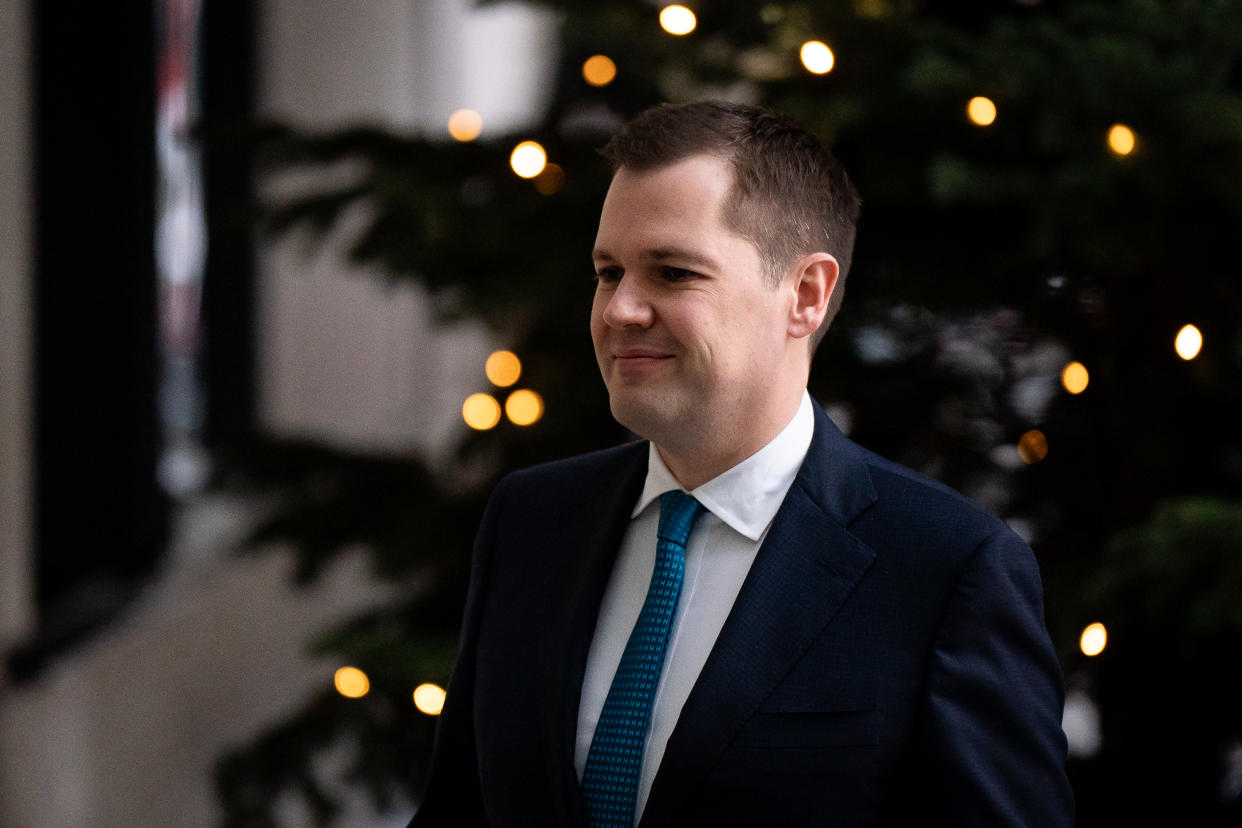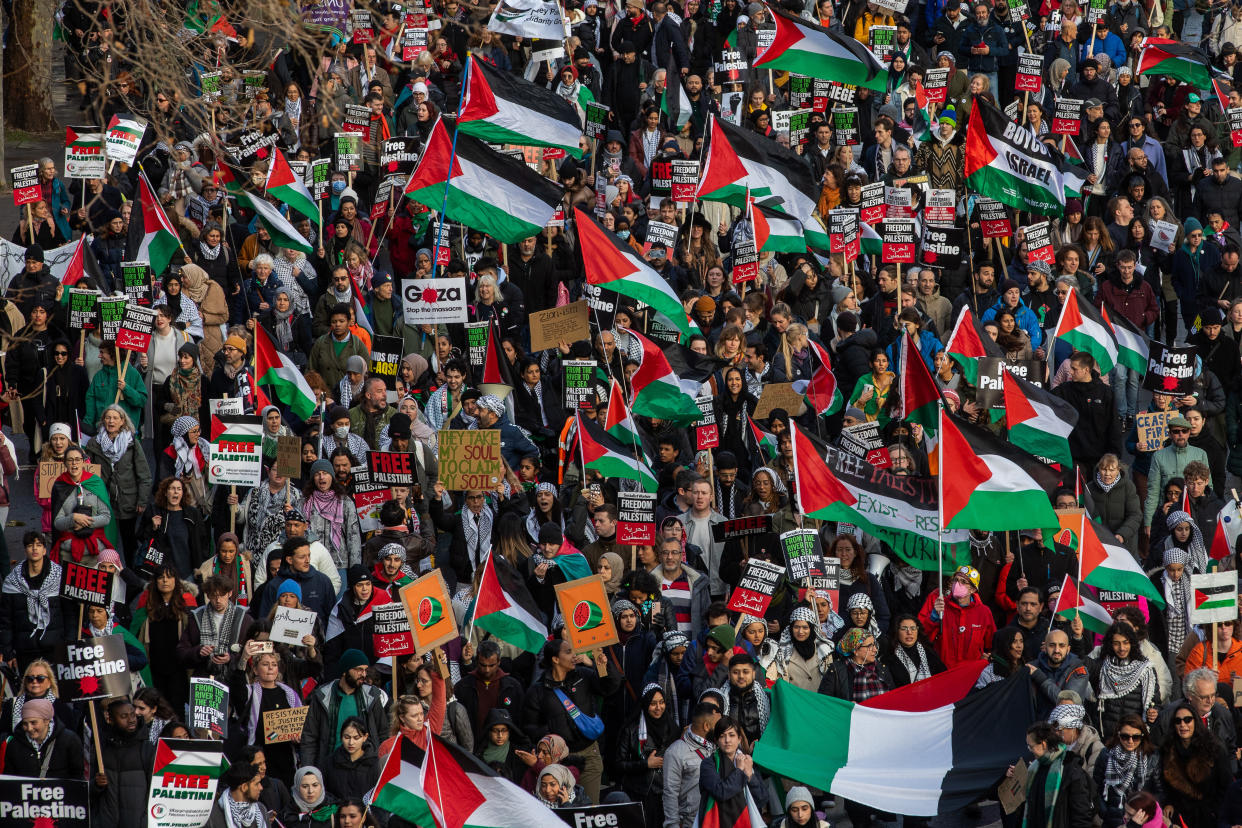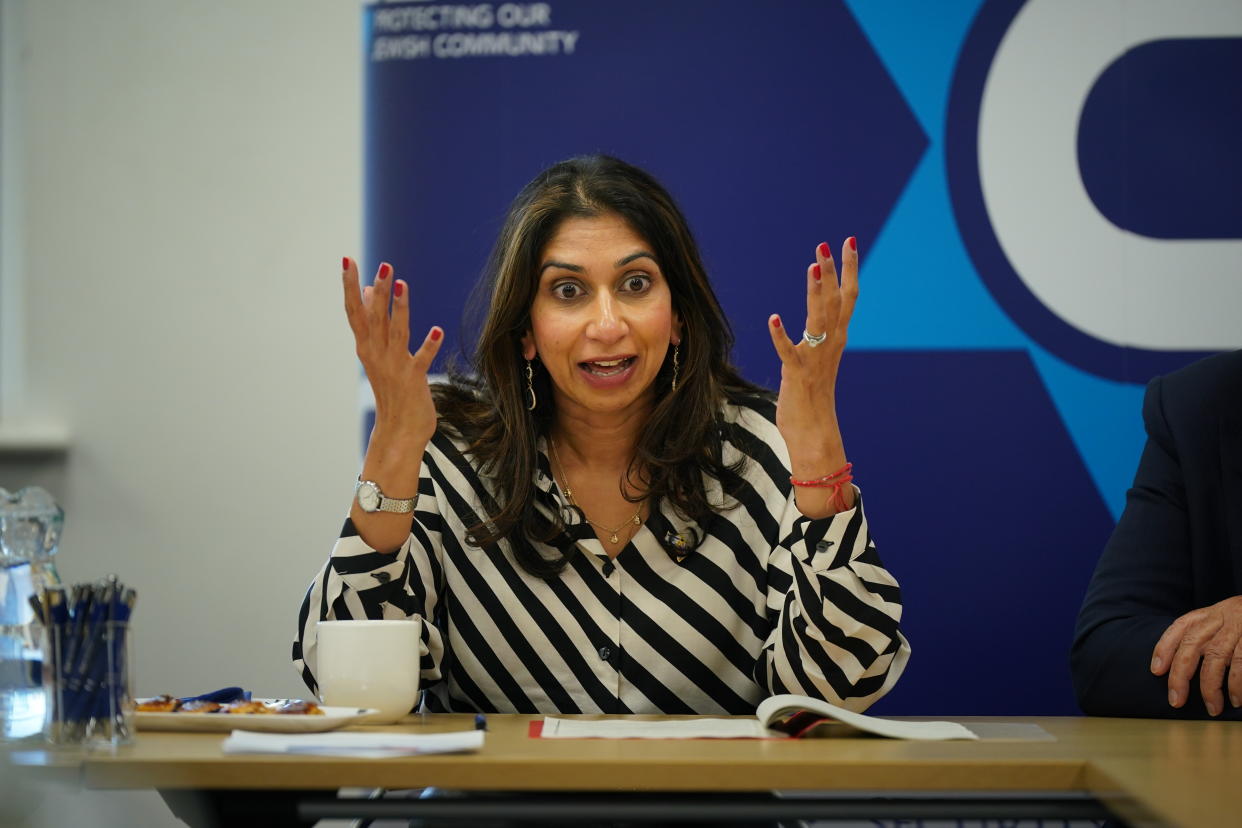Protest marches through London are 'example of mass migration not working', Robert Jenrick says

Robert Jenrick has been accused of "sowing division" after suggesting "deeply disturbing behaviour" at recent protests in London is "connected to mass uncontrolled migration".
The former immigration minister, who resigned this week due to disagreements over the government's Rwanda policy, said that many people at these marches through the capital "did not share British values". This appeared to be a reference to recent pro-Palestine marches in London, although he did not mention the territories by name.
With around 1.2 million people estimated to have immigrated to the UK in the year ending June 2023, according to the ONS, Jenrick suggested such an influx is "damaging our ability to integrate those people successfully and to be a united country".
When challenged to show evidence for this claim, he told the BBC's Sunday with Laura Kuenssberg programme: "I think there are communities in our country where people are leading parallel lives. It's an obvious observation that a million people coming into our country every year is immensely challenging to successfully integrate."
He added: "I've seen that recently for example with the marches through London, where I saw some people who simply did not share British values. I thought that was wrong, it was deeply disturbing, and we've got to take action to address that."
Watch: 'I won't be supporting the Rwanda Bill,' Robert Jenrick says
Recommended reading
Here’s what Brits really think of immigration (Yahoo News)
Universities warn new immigration rules show Britain is 'closing ranks' (Sky News)
Robert Jenrick says he is "not Interested" running for Tory leadership (Evening Standard)
‘Don’t fall in love with someone foreign’: How new UK immigration rules could tear families apart (Yahoo News)
Jenrick's comments echo that of former home secretary Suella Braverman, who told The Sunday Telegraph that a "rapid increase in migration" is "straining community cohesion". She added that recent events on the streets of London proved she was right in suggesting that "multiculturalism had failed".
The Metropolitan Police has made a number of arrests during pro-Palestine marches in London over the past few months, including for inciting racial hatred and showing support for proscribed terror group Hamas. However, considering the tens of thousands of people attending these marches, arrest numbers have been small by comparison. The Met Police said that out of an estimated 40,000 people at this Saturday's march, a total of 13 were arrested.
Even still, some ministers have been alarmed by the protests, with Braverman receiving criticism for describing them as "hate marches" in an unauthorised op-ed for The Times. Her suggestion that police were "playing favourites" with pro-Palestinian activists was blamed by many critics on a group of far-right counter protesters clashing with police on Armistice Day – eventually leading to her being sacked.
Despite facing political pressure to prevent the protest, given the significance of the day, the Met Police defied calls for a ban, saying banning demonstrations in the interests of safety should be a "last resort" and that the threshold hadn't been met. The organiser of the Armistice Day event at the Cenotaph, Richard Hughes, expressed his support for the protest, saying: "We are a democratic organisation that commemorates those who fought for democracy, so free speech is important."

The Migrants' Rights Network echoed these sentiments when asked about Jenrick's latest remarks, telling Yahoo News: "Everyone, including migrants, has a fundamental right to protest injustice. The former immigration minister's comments and fixation on 'integration' and the false idea of 'mass migration' are blatantly inflammatory and designed to sow division. This is a deliberate attempt to instil the idea that migrants are a threat...
"Linking migration to protests (and protesters) calling for an end to the genocide in Palestine, is another mechanism to problematise migration. This is used to justify increasingly harsh immigration policies as well as racist profiling and surveillance of migrant and migratised communities."
The Migrants' Rights Network claimed that "terms like 'assimilation', 'cohesion', 'integration' and 'British values' are underpinned by racist undertones which construct migrants as a threat... Migrants do not threaten the unity of communities. Scaremongering politics and divisive comments do, and we must reject these attempts to pit migrants against other communities. Instead, we must all strive to create a society where migrants, and other marginalised communities, feel safe and respected."

Government accused of 'cracking down on civil liberties'
While there have undoubtedly been some displays of antisemitic imagery and extremist views expressed at recent demonstrations, human rights groups are concerned that anger over the war in Gaza could be used to suppress legitimate protest.
Government plans leaked to The Observer last month revealed proposals to broaden the definition of an extremist to anyone who "aims to overturn or undermine the UK's system of parliamentary democracy, its institutions and values".
Ilyas Nagdee, of Amnesty International, told the newspaper this broadening of the definition would "criminalise any dissent". Interim director of civil rights group Liberty, Akiko Hart, added: "This proposed change would be a reckless and cynical move, threatening to significantly suppress freedom of expression."
At the time, a government spokesperson said: “We are clear there is no place for extremism, and over the last few years we have taken action to tackle hatred and those who seek to divide us. As you would expect, we keep our approach to tackling extremism under review to ensure it meets the evolving challenge it poses."


